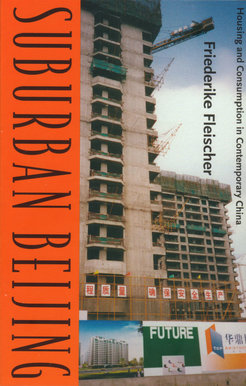Suburban Beijing. Housing and consumption in contemporary China

Author
Friederike Fleischer
Publisher
Minneapolis: University of Minnesota Press
Year of publication
2010
ISBN
978-0-8166-6587-7
OPAC
Abstract
In the last decade of the twentieth century, one of the most fundamental changes in urban China has been the expansion and privatization of housing, with per capita housing space increasing by more than 50 percent. As a result, ordinary citizens in urban China have started to cultivate personal space and have a new incentive to make more money, and wealth is being stratified. Suburban Beijing documents this process, analyzing its underlying forces and its ramifications for redefining the Chinese social landscape. Friederike Fleischer depicts the way Chinese residents in Wangjing, a Beijing suburb, have been affected by the recent transformation in their housing, showing how the suburb developed from its antecedents as a Maoist industrial production zone to its present status as China’s first middle-class residential area. The new suburban middle class lives side by side with retired workers and with rural-to-urban migrants. Fleischer describes how all three groups share the same neighborhood, highlighting both the similarities and the growing differences among these groups of suburban residents in a rapidly evolving China.
